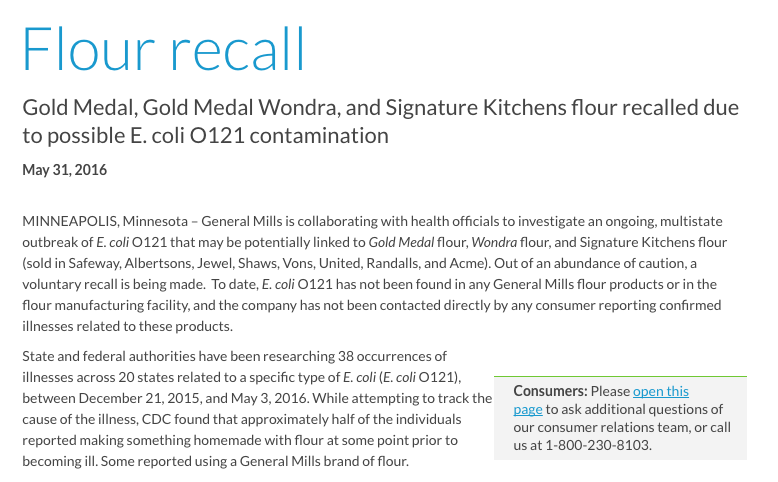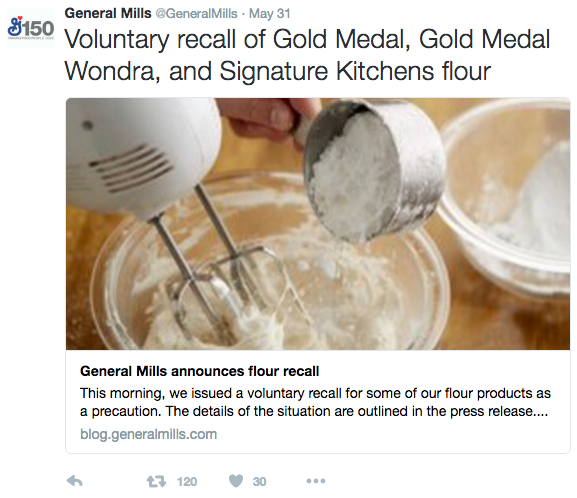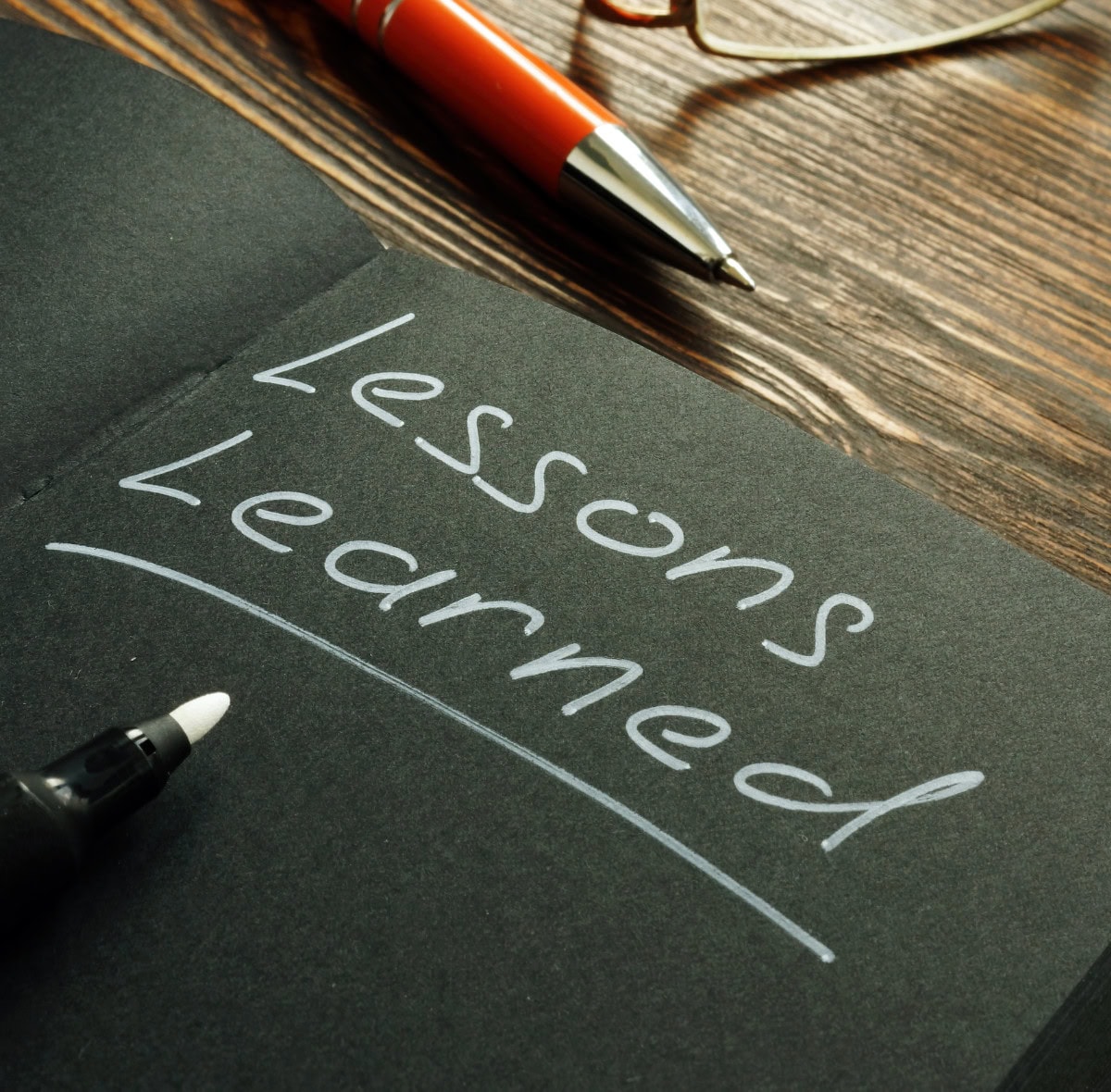A brand’s worst nightmare: product recall. For brands in the food industry, customers’ health and safety are on the line and any recall situation can turn bad. Every brand should treat a recall situation as a crisis – even if nothing bad has happened yet. Taking the right steps in a recall situation can help protect your brand’s image and help your fans stick with you through and after the crisis.
This week General Mills recalled thousands of pounds of flour after health officials traced 38 E.coli cases back to the contaminated flour. Fortunately, General Mills took appropriate steps that may have potentially relieved a more serious crisis. Here are three lessons we can learn from this General Mills product recall:
1. Have your game plan ready
Mistake #1 – don’t believe that a crisis or a product recall could never happen to you. Have a game plan in place before a crisis even strikes, so if and when a time comes when you need it, you’re ready. Think about potential scenarios that could happen to your brand and prepare template press releases, social media posts and blog posts for addressing the situation. Know who will be speaking to the media, who will be answering social questions and where customers can address their questions and concerns.
General Mills was able to quickly respond with a thorough press release that detailed every known piece of information, including where people could go with more questions.

2. Be honest and transparent
There’s nothing worse than not being honest with the public, especially in times of crisis. General Mills pulled its flour from stores without any hard evidence that its brands of flour were making people sick. The brand announced that as a precautionary measure, it would pull its flour until health officials were able to determine the cause, which positioned the brand one that greatly values the health and safety of its customers. General Mills also articulated very specific information to the public about which brands of flour might have E.coli and where the reported cases were. The public needs to be able to trust your brand, or they aren’t going to stick around.
3. Look for opportunities to educate
General Mills took this opportunity to remind the public that flour is a natural ingredient made from mining wheat. When an ingredient is made outside, there is always a risk of bacteria being on the product, but when baked, fried or boiled, this bacteria becomes harmless. General Mills is reminding customers to never eat raw dough and to thoroughly clean all baking surfaces and utensils before and after use. This is another great example of demonstrating commitment to customers’ safety while also providing valuable, useful information to your audience. It is possible to use a crisis situation to remind everyone about the appropriate use of your product and hopefully avoid these issues going forward.
The way a brand approaches and leverages a crisis situation will determine how customers and fans will react to the situation. The recent situation with General Mills is a perfect example of how to handle a recall appropriately with clear, comprehensive communication.

